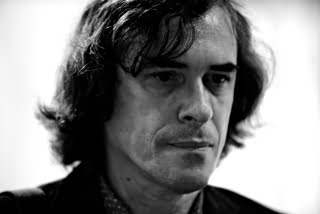
Mircea Cărtărescu
- Romania
- Zu Gast beim ilb: 2015
Mircea Cărtărescu was born in Bucharest in 1956. After completing his studies in the Faculty of Letters of the University of Bucharest, he worked as a teacher of Romanian language and literature at a college-prep high school before being editor-in-chief of the literary magazine »Caiete critice« (tr. Critical notebooks). Since 1990, he has been a Ph.D. Professor for Romanian Literary History in the department from which he received his doctorate for a thesis on Romanian postmodernism. He has also taught at the universities of Amsterdam, Vienna and Freie Universität Berlin (Samuel Fischer course, 2010).
A member of the European Cultural Parliament and of the Romanian PEN Club, Cărtărescu had his literary debut with the poetry volume »Faruri, vitrine, fotografii« (1980; tr. Headlights, shop windows, photographs). His first work of prose, »Visul« (1989; tr. The dream), set in Bucharest in the 1960s and ’70s, tells of the adventures of childhood and youth, in which the boundaries between reality and unreality constantly shift. The unvarying narrative intensity, which charges even everyday places and objects, led a review in the magazine »Spiegel« to term the Romanian author a »Proust in a prefab high-rise«. Cărtărescu’s oeuvre has a broad spectrum. Among the 23 books he has published in Romanian so far are literary-critical essays like the essay, published in 1991, »Visul chimeric« (tr. The chimerical dream), »Parfumul aspru al ficţiunii« (2003; tr. The rare perfume of fiction), five audiobooks, the children’s book »Enciclopedia zmeilor« (2002; tr. Encyclopedia of dragons), three diaries, the book of stories »De ce iubim femeile« (2004; Eng. »Why We Love Women«, 2011), the long poem »Levantul« (1990; tr. The Levant), the novel »Travesti« (tr. Travesty), and the three-part novel series »Orbitor« (Eng. » Blinding«, 2013). In the volumes »Aripa stângă« (1996; tr. The knowing), »Corpul« (2002; tr. The body), and »Aripa dreaptă« (2007; tr. The wings«, 2014), Cărtărescu unfolds in the form of an autobiography, which he himself told an interviewer was unreliable, the history of his family in the era of the dictator Nicolae Ceauşescu. He combines the depiction of the often absurd-seeming prevailing conditions with reflections on writing, which Cărtărescu feels is so much a part of life that he coined the phrase »texistence« for himself. Here, too, the boundaries to the surreal are blurred, and the everyday menace of the secret police prepares the ground for nightmares and hallucinations.
The press has repeatedly treated Cărtărescu as a potential Nobel Prizewinner. He won the International Prize for Literature (Haus der Kulturen der Welt, Berlin, 2012), the Spycher-Leuk Prize (Switzerland, 2013) und the Leipzig Book Prize for European Understanding for his trilogy (2015). He lives in Bucharest.
Die Wissenden
Zsolnay
Wien, 2007
[Ü: Gerhardt Csejka]
Warum wir die Frauen lieben
Suhrkamp
Frankfurt a. M., 2008
[Ü: Ernest Wichner]
Travestie
Suhrkamp
Berlin, 2010
[Ü: Ernest Wichner]
Der Körper
Zsolnay
Wien, 2011
[Ü: Gerhardt Csejka / Ferdinand Leopold]
Die Flügel
Zsolnay
Wien, 2014
[Ü: Ferdinand Leopold]
